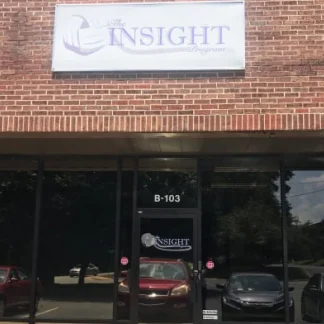Shelter Health Services
Shelter Health Services is a private rehab located in Charlotte, North Carolina....
The Insight Program is a drug and alcohol addiction treatment provider for youth and adolescents that is located in Charlotte, North Carolina. Services are available to teens (13 to 17) and young adults (18 to 25).
The Insight Program offers multiple levels of care, including initial assessments, intensive outpatient rehab, outpatient treatment, and aftercare. They also provide participants with access to community resources, family support services, and case management.
Mental Health Assessment and Counseling Mental health assessments evaluate the client’s mental health and substance use behavior. The information helps to create an individualized treatment plan, which may include individual, group, and/or family counseling.
General and Intensive Outpatient Programs (IOPs) The Insight Program supports teens and young adults in both an intensive outpatient program and a general outpatient program. Treatment includes individual and group therapy, family support meetings, peer support services, social events, and education. Sessions are held several days a week, including evenings.
A comprehensive assessment during the intake process will determine the appropriate level of care needed to support each individual client.
Contact us for more information: (704) 679-9600

Connect with Insight Program - Charlotte by calling their admissions team directly.
(704) 679-9600 Website Get DirectionsResearch clearly demonstrates that recovery is far more successful and sustainable when loved ones like family members participate in rehab and substance abuse treatment. Genetic factors may be at play when it comes to drug and alcohol addiction, as well as mental health issues. Family dynamics often play a critical role in addiction triggers, and if properly educated, family members can be a strong source of support when it comes to rehabilitation.
Group therapy is any therapeutic work that happens in a group (not one-on-one). There are a number of different group therapy modalities, including support groups, experiential therapy, psycho-education, and more. Group therapy involves treatment as well as processing interaction between group members.
In individual therapy, a patient meets one-on-one with a trained psychologist or counselor. Therapy is a pivotal part of effective substance abuse treatment, as it often covers root causes of addiction, including challenges faced by the patient in their social, family, and work/school life.
Group therapy is any therapeutic work that happens in a group (not one-on-one). There are a number of different group therapy modalities, including support groups, experiential therapy, psycho-education, and more. Group therapy involves treatment as well as processing interaction between group members.
In individual therapy, a patient meets one-on-one with a trained psychologist or counselor. Therapy is a pivotal part of effective substance abuse treatment, as it often covers root causes of addiction, including challenges faced by the patient in their social, family, and work/school life.
In individual therapy, a patient meets one-on-one with a trained psychologist or counselor. Therapy is a pivotal part of effective substance abuse treatment, as it often covers root causes of addiction, including challenges faced by the patient in their social, family, and work/school life.
Shelter Health Services is a private rehab located in Charlotte, North Carolina....
Dilworth Center provides outpatient treatment for individuals with substance add...
Carolinas Medical Center - Mercy is a non profit rehab located in Charlotte, NC....
Mecklenburg County Community Support Services - Men's Shelter provides Substance...